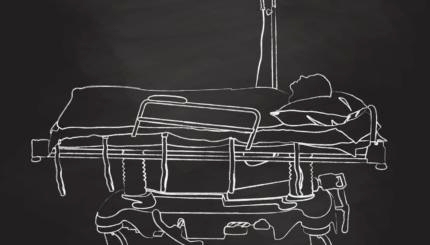Converts and Mourning
A convert to Judaism, according to Jewish law, no longer has kinship ties to her gentile family. Therefore, if a parent or other relative for whom Jewish law obligates mourning dies, the convert is under no obligation to sit [the first seven days of intensive mourning]. Jewish law, in fact, discourages shiva in a case like this but looks benignly upon a convert who wishes to recite [the memorial prayer] in memory of the deceased relative.
Mourning and Marriage
Should a bride or groom suffer the loss of a close relative within 30 days of a scheduled wedding, it is postponed until the conclusion of sheloshim [the first 30 days of mourning] ([Shulchan Arukh, Yoreh Deah,] 392:1). Even if it is a parent who died, a marriage may still take place after sheloshim–that is, during the 12-month mourning period [required for a parent]. No restrictions are placed on the joyousness of the celebration.
The Kohen and Death
A kohen [or descendant of the priestly class], who in the past was and even today is subject to more demanding laws of ritual purity than other Jews, is not allowed to come into contact with a corpse or even be under the same roof, unless it is one of the seven family members for whom he is obligated to mourn. Because of this holiness code, kohanim may not attend funeral ceremonies of anyone other than close family members if the casket is present, nor may they enter a cemetery. Some kohanim remain outside the funeral chapel during the funeral service to show their respect for the deceased. These rules apply only to male kohanim.
Excerpted with permission from “Death and Mourning: A Time for Weeping, A Time for Healing,” in Celebration and Renewal: Rites of Passage in Judaism, edited by Rela Mintz Geffen (Jewish Publication Society).

Help us keep Jewish knowledge accessible to millions of people around the world.
Your donation to My Jewish Learning fuels endless journeys of Jewish discovery. With your help, My Jewish Learning can continue to provide nonstop opportunities for learning, connection and growth.
Sign up for a Journey Through Grief & Mourning: Whether you have lost a loved one recently or just want to learn the basics of Jewish mourning rituals, this 8-part email series will guide you through everything you need to know and help you feel supported and comforted at a difficult time.
Looking for a way to say Mourner’s Kaddish in a minyan? My Jewish Learning’s daily online minyan gives mourners and others an opportunity to say Kaddish in community and learn from leading rabbis.



